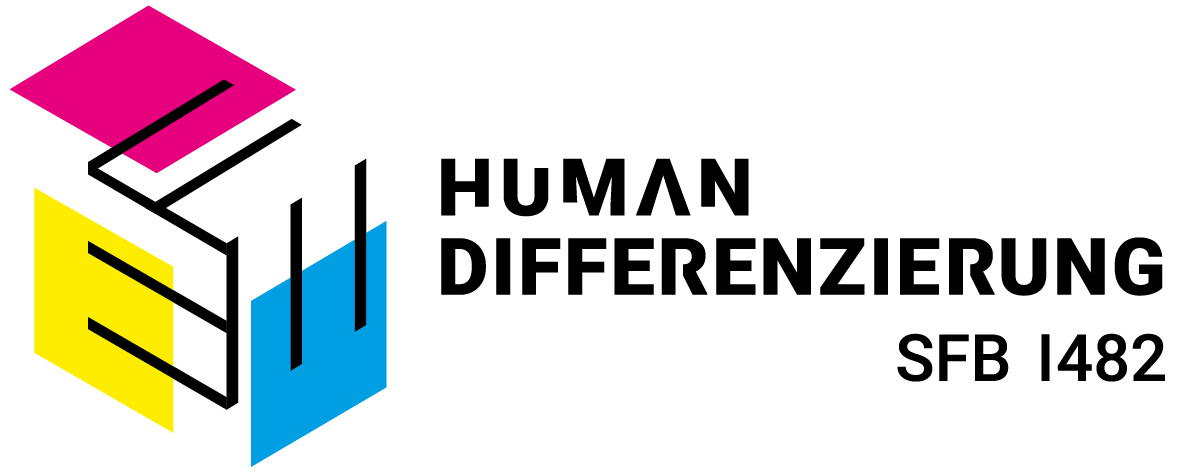-
Opening day
-
Submission deadline
Sorting and Translating: Politics – Borders – Belongings
International Conference
30 January 2025 – 1 February 2025
Faculty of Translation Studies, Linguistics, and Cultural Studies
University of Mainz (Germersheim)
Keynote Speakers
Rita Kothari
(Ashoka University)
Douglas Robinson
(The Chinese University of Hong Kong)
Call for Papers
Traditionally, translation (including interpreting) has been understood as an act of overcoming pre-existing linguistic and cultural differences. More recently, however, this understanding has been contested in Translation Studies. The idea that translation produces the differences it claims to overcome and that such differences can be regarded as effects of translation rather than conditions preceding it has been theoretically addressed with concepts like bordering (Sakai 2018, cf. Dizdar 2019, 2021). By producing differences and creating borders, translation is also effective in the construction of “collectivities” (Dizdar/Rozmyslowicz 2023) in the social world. When it marks a difference between languages, it simultaneously differentiates between individual speakers of a given language and between communities – which may differ in size and kind: national communities (e.g. Cronin 1996; Kothari 2007; Dizdar/Gipper/Schreiber 2015), gender identities (Simon 1996; Baer/Kaindl 2018; Robinson 2019), deaf and hearing communities (Young/Napier/Oram 2020), humans and machines (Rozmyslowicz 2023) – in short: between all sorts of collectivities (Dizdar/Rozmyslowicz 2023).
The conference addresses the question of how translation participates in the construction and undoing of differences in the social world and how it sorts people into categories. Which categories become relevant in which situation and field (politics, science, law, religion, art etc.)? And how do they interact? Moreover: which categories and distinctions are inscribed in concepts and theories of translation? Which ‘centrisms’ (e.g. eurocentrism, anthropocentrism) or ‘biases’ can be identified?
These and other related questions concerning translation’s power to construct difference can be discussed with reference to various empirical contexts or on a general theoretical level. The conference welcomes contributions on its main topic in the context of all research fields and perspectives. It aims to foster and intensify dialogue on translation by bringing together researchers from various backgrounds.
The organizers
Dilek Dizdar (Mainz/Germersheim), Kaiko Lenhard (Mainz/Germersheim), Tomasz Rozmysłowicz (Mainz/Germersheim)
Scientific committee
Luc van Doorslaer (Tartu and Leuven), Şebnem Bahadır (Graz), Michael Schreiber (Mainz/Germersheim), Dilek Dizdar (Mainz/Germersheim), Tomasz Rozmysłowicz (Mainz/Germersheim)
References
Baer, Brian James/Kaindl, Klaus (eds.) (2018): Queering Translation, Translating the Queer: Theory, Practice, Activism. New York: Routledge. https://doi.org/10.4324/9781315505978.
Cronin, Michael (1996): Translating Ireland. Translation, Languages, Culture. Cork: Cork University Press.
Dizdar, Dilek (2021): “Translation als Katalysator von Humandifferenzierung. Eine translationswissenschaftliche Bestandsaufnahme” In: Humandifferenzierung. Disziplinäre Perspektiven und empirische Sondierungen, edited by Dilek Dizdar, Stefan Hirschauer, Johannes Paulmann, and Gabriele Schabacher. Weilerswist: Velbrück, 135-159.
Dizdar, Dilek (2019): “Translation und Grenze. Versuch einer translationswissenschaftlichen Neufiguration” In: Übersetzung. Über die Möglichkeit, Pädagogik anders zu denken, edited by Nicolas Engel and Stefan Köngeter. Wiesbaden: Springer, 57-74. https://doi.org/10.1007/978-3-658-20321-4.
Dizdar, Dilek/Gipper, Andreas/Schreiber, Michael (eds.) (2015): Nationenbildung und Übersetzung. Berlin: Frank & Timme.
Dizdar, Dilek/Rozmysłowicz, Tomasz (2023): “Collectivities in translation (studies). Towards a Conceptual Framework” In: Translation and the Formation of Collectivities, edited by Dilek Dizdar and Tomasz Rozmysłowicz. Special issue of Translation in Society 2 (1), 1-14. https://doi.org/10.1075/tris.2.1.
Kothari, Rita (2014): Translating India. The Cultural Politics of English. London: Routledge. https://doi.org/10.4324/9781315760438.
Robinson, Douglas (2019): Transgender, Translation, Translingual address. New York: Bloomsbury. https://doi.org/10.5040/9781501345579.
Rozmysłowicz, Tomasz (2023): “The politics of machine translation. Reprogramming translation studies.” In: Perspectives. Studies in Translation Theory and Practice. [online first]. https://doi.org/10.1080/0907676X.2023.2292571.
Sakai, Naoki (2008): “How do we count a language? Translation and Discontinuity” In: The Translational Turn, edited by Michaela Wolf and Kate Sturge. Special issue of Translation Studies 2 (1), 71-88. https://doi.org/10.1080/14781700802496266.
Simon, Sherry (1996): Gender in Translation: Cultural Identity and the Politics of Transmission. London: Routledge. https://doi.org/10.4324/9780203202890.
Young, Alys/Napier, Jemina/Oram, Rosemary (2020): “The translated deaf self, ontological (in)security and deaf culture” In: Translating Cultures, edited by Charles Forsdick and Barbara Spadaro. Special issue of The Translator 25 (4), 349-368. https://doi.org/10.1080/13556509.2020.1734165.

